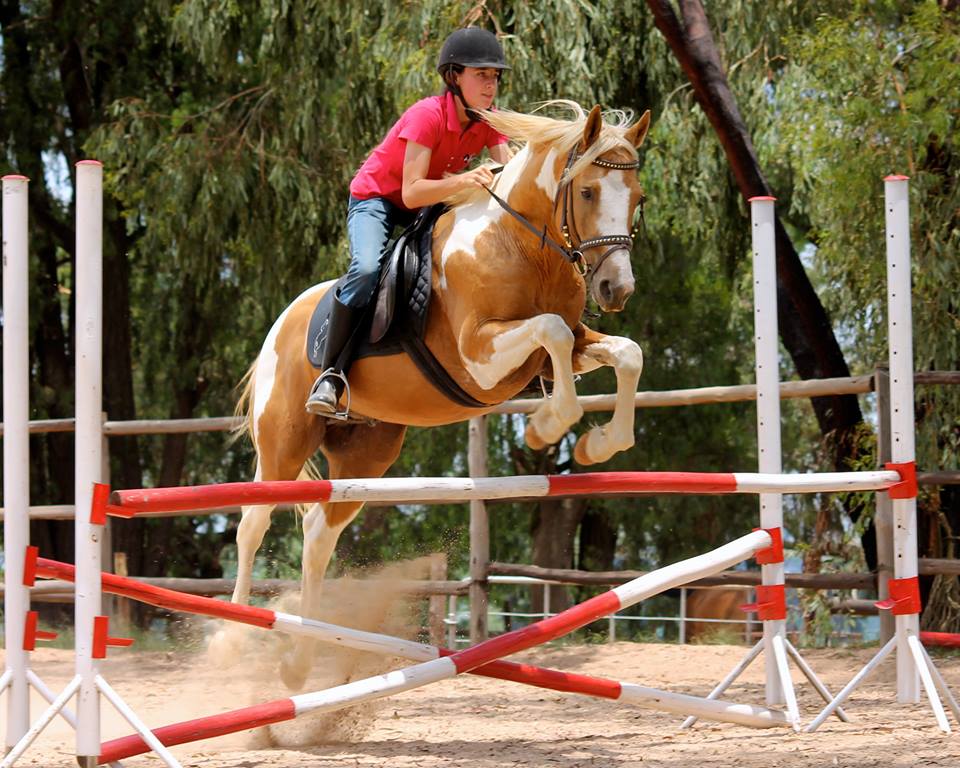Search the Site
Firn's Blog Post # 7
Barn Rats Rule the World

In the world of horses, to be a good rider, you need to attend lessons and read books. To become an outstanding rider, you need to be a barn rat. (Oh, and joining My Virtual Eventing Coach would help, too. Just sayin')
We've all seen the barn rats. Usually skinny suntanned girls with boots held closed by baling twine, you see them falling off sale ponies and holding other people's expensive horses for the farrier. The more irritating ones have a too-cool-for-you attitude; the only slightly less irritating ones are forever popping up holding stuff you need just as you're about to go fetch it yourself. But we all have one thing in common: We learn things that you don't read in books or hear in lessons. And it's these things that we need to know to become not just riders, but horsemen.
I was a barn rat before I even had a barn to rat at. We've always kept our horses at home, originally amongst the dairy cows. But as soon as I was old enough (12, since you ask), I became my ever-patient Horse Mutterer's tiny, shy shadow. As freelance trainer and farrier, he spent most of his days driving around Heidelberg giving lessons, doing feet and backing horses, and for five or six years he has been followed a few days a week by his faithful (annoying) little shadow. And if I was to give any young aspiring rider one piece of equestrian advice it would be this: Find a patient pro, and shadow them for all they're worth.
I learned more things driving around the country than I ever learned in my lessons. I rode more horses than I remember, taught lessons under the Mutterer's watchful eye, learned to recognise almost any colour or breed (or lack thereof), trimmed feet, held horses that acted up in varying different ways and learned to deal with it, and asked so many questions that it is a small miracle that the Mutterer has not yet developed an allergy to the question mark. I learned how to put on basically any type of saddle and bridle, the names (and more importantly, the actions) of different types of bits, how to guess (badly) at a horse's age by his teeth, and how to handle hundreds of different little ailments. I also learned a few choice words, but we'd rather not mention those. I quizzed, and still do, my poor trainer on absolutely anything that came to mind; the hours spent in the car were not unproductive. I also learned how to talk to horse owners, which is an art in itself, how to console small screaming children and how to get a bored teenager to show some interest in their lessons. I have not perfected any of these things, but I have learned the very basics of them, and refine them with every opportunity I get.
Now that we both actually work at one stableyard, I have become the barn rat. In between riding my clients' horses, I also hold them for the vet or the farrier and ask /them/ questions; I listen in on conversations about breeding, feeding, and facilities. I've learned about building fences, laying out a farm in a way that keeps stallions happy, handling colic, scanning, artificial insemination and Caslicks sutures. I watch the Mutterer ride, analysing everything he and the horse both do, trying to figure out why they react to one another the way they do. I follow him everywhere he goes (I think he's used to his shadow by now) and ask him anything that pops into my head. You can't do this with all professionals, but I am most grateful that I can ask him anything.
Being the Mutterer, he may only answer me two hours later having carefully thought about it, but you always know you're getting a good answer. Yes, if there is one thing a young rider can do to learn, it is to be the barn rat. But if there is one thing that will kill that opportunity, it's being self-obsessed. Barn rats are not the star pupils who get put on pedestals and have grooms clean their horses. You owe that trainer/farrier/vet/owner/whatever so much for answering your questions and putting up with your mistakes. Help them at any opportunity you can get, with anything you can. When you see them frown mid-session, figure out what piece of equipment they need and be there with it when they turn around. Offer to fetch the horses they work in from the field - no, better yet, just do it so that when they go out the horses are ready and waiting. Help them saddle up; of course they can saddle up just fine by themselves, but it saves time and effort when you have one person per side running stirrups down and passing the girth, or have someone holding a fidgeting horse. Don't expect to be thanked.
And you don't get paid to be a barn rat, not in money. You get paid in knowledge. You also get wet, dirty, sweaty, tired, squashed, kicked, bored, sunburned and thrown off. After several hours of holding horses for the farrier without learning anything, you just want to go home. But that's usually five minutes before the farrier (in a muffled voice, whilst clinging to the lunging hoof of whatever horse they are bent over) gives you a golden nugget of wisdom that you will hoard away and remember for the rest of your life. Nobody likes to load and unload pickups full of branches after a tree blows over in the paddock and you, naturally, show up to help move it, especially when you still have to go home and groom and feed your own horses. And some days, you don't even learn anything. But you're not just building your knowledge - you're building your reputation as a hardworking, reliable type, someone who goes the extra mile. Richard Branson says, "Hire for attitude. Train for skill."
And at the end of the day, it's not your skill that gets you picked out from seas of overqualified, underexperienced young professionals as the one who gets a job and does something amazing with it. It's that willingness to learn, to still be willing and upbeat after eight hours of catching and deworming insane young horses, and to sweat it out until the job is done.
Don't worry about the people with big expensive horses that you muck out and feed, barn rats. In a few years' time, you'll rule the horse world.






